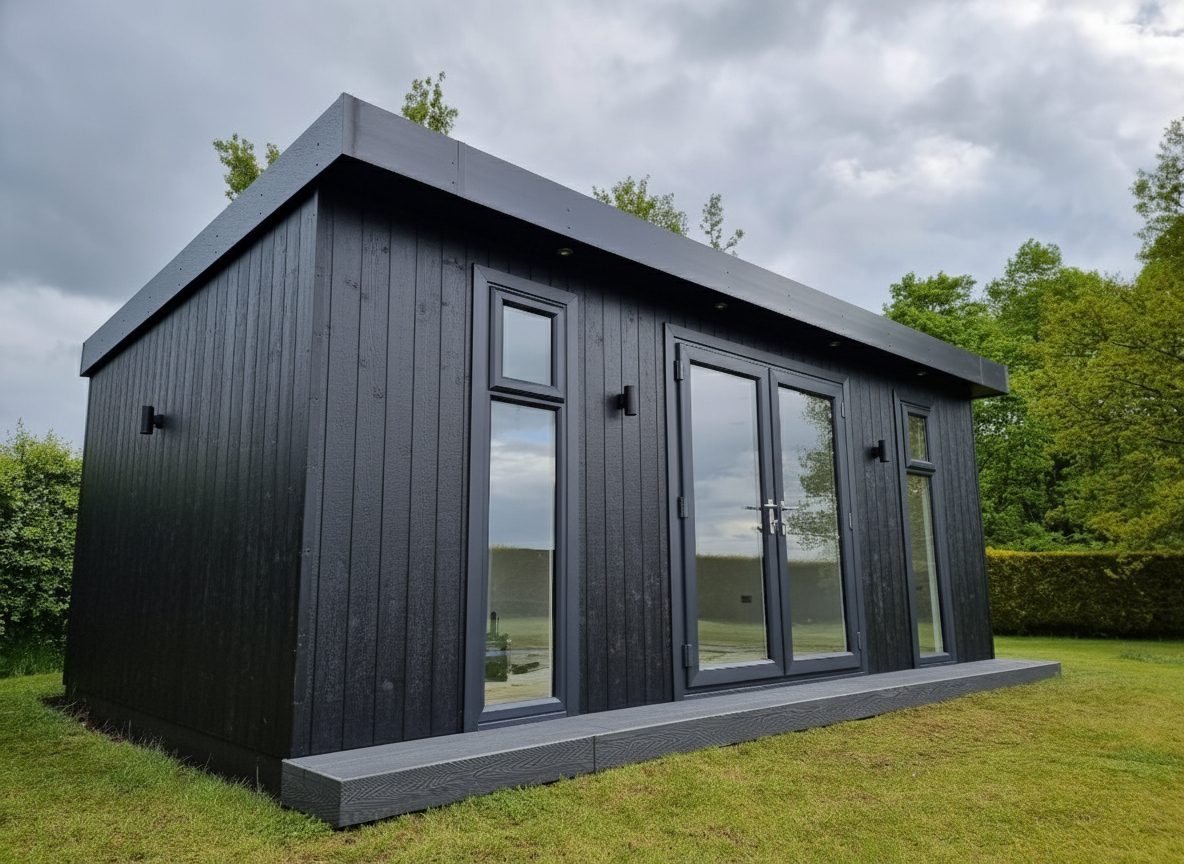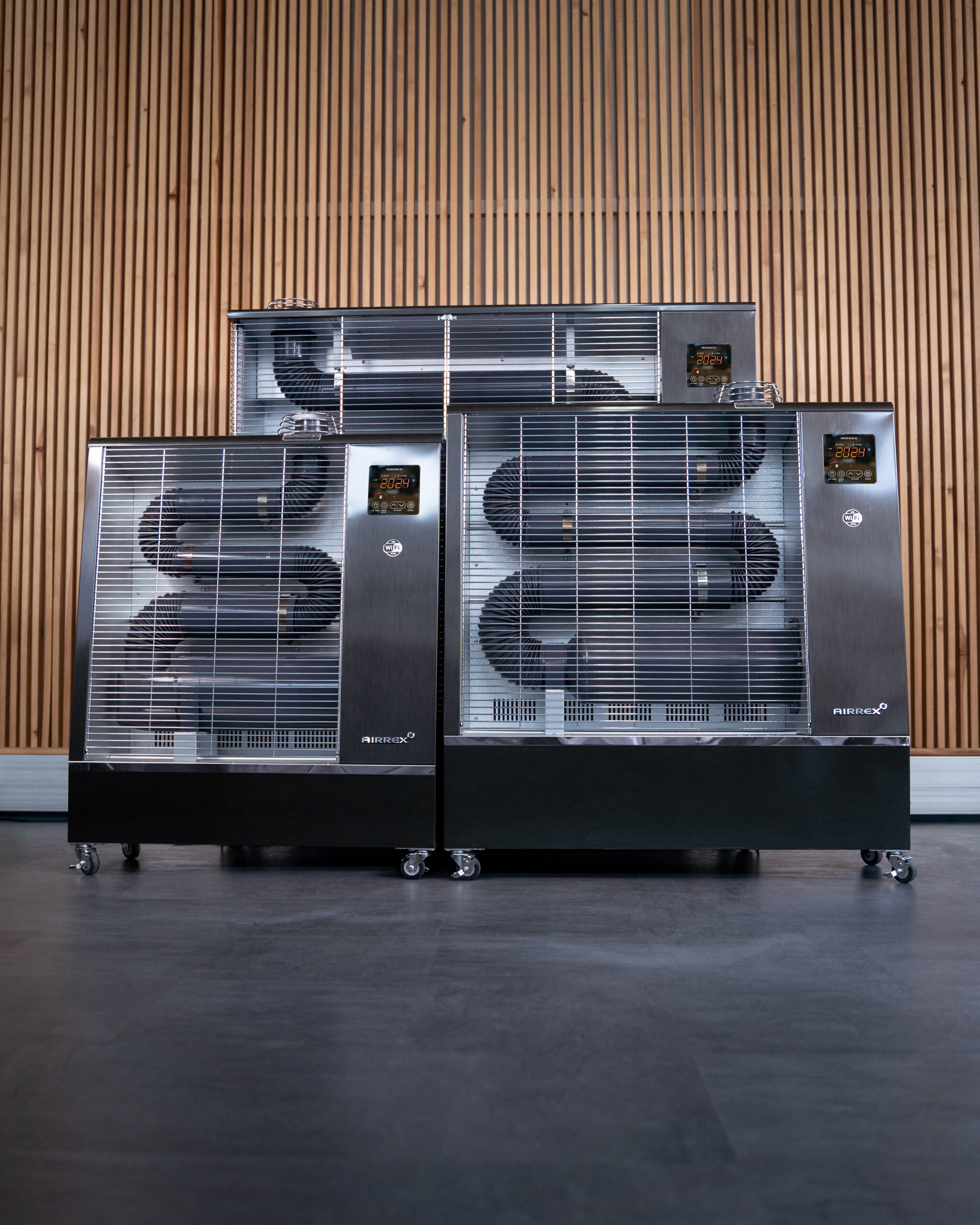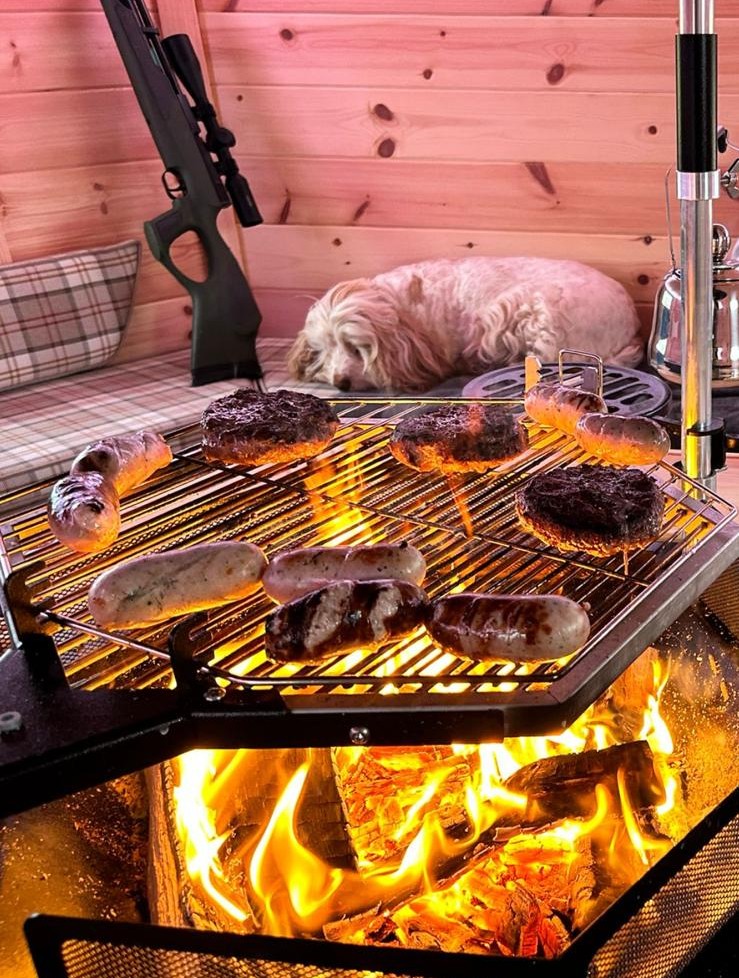Ventilation is really important both inside, and around the cabin. How come? Read on.....
The Importance of Ventilation in, and around a BBQ Cabin
BBQ cabins, also known as grill huts or BBQ huts, as we well know, are charming and functional structures designed for year-round outdoor cooking and entertainment. These cabins provide a cosy, sheltered environment for grilling enthusiasts, protecting them from the Scottish elements while they enjoy their culinary activities.
However, one critical aspect that is often overlooked in the design and use of BBQ cabins is proper ventilation. Adequate ventilation in and around a BBQ cabin is essential for several reasons, including safety, comfort, health, the quality of the grilling experience, and the longevity of the cabin. We look at all of these in this article, and the importance of ventilation in BBQ cabins, emphasising its role in preventing hazards, ensuring comfort, promoting health, and enhancing the overall barbecue experience.
Safety Considerations
The primary reason for ensuring proper ventilation in a BBQ cabin is safety. Barbecuing involves the combustion of fuels, which produces heat, smoke, and various gases, including carbon monoxide (CO). Without adequate ventilation, these byproducts can accumulate to dangerous levels, posing significant health risks and fire hazards.
Carbon Monoxide:
Carbon monoxide is a colorless, odorless gas that can be lethal at high concentrations. It is produced when fuels burn incompletely. In an enclosed space, CO could quickly build up, leading to symptoms such as headaches, dizziness, nausea, and, in severe cases, unconsciousness or death. Proper ventilation ensures that CO and other harmful gases are effectively dispersed, minimizing the risk of poisoning.
Fire Hazards:
Inadequate ventilation can cause heat to accumulate, increasing the risk of accidental fires. Additionally, smoke buildup can reduce visibility and hinder quick evacuation in the event of a fire. Effective ventilation systems help control temperature and smoke levels, reducing the likelihood of fires and ensuring a safer cooking environment.

Comfort and Enjoyment
Beyond safety, proper ventilation significantly enhances the comfort and enjoyment of using a BBQ cabin. A well-ventilated cabin provides a more pleasant atmosphere for both the cook and the guests, ensuring that the experience remains enjoyable regardless of the season.
Temperature Regulation:
BBQ cabins can become hot, especially when grills are in use. Good ventilation helps regulate the temperature, preventing the cabin from becoming uncomfortably warm. This is particularly important in warmer months or climates, where high temperatures can quickly make the space unbearable. Not that this is a common problem in Scotland, but it has been known!
Smoke Management:
One of the less enjoyable aspects of grilling is the smoke produced during cooking. Without proper ventilation, smoke can linger inside the cabin, causing discomfort, irritating the eyes and respiratory system, and imparting an unpleasant smell to clothing and furniture. Effective ventilation systems, such as vents, windows, and opening the door, ensure that smoke is swiftly removed from the cabin, maintaining a clear and comfortable environment. Smokey fires are usually caused by damp or wet wood, or the fire not having enough on it, and then when added to, needs to breath itself back into life. Keeping the fire stocked well, reduces this.
During cooking, smoke usually comes from very fatty foods, so sometimes it is better to start these off elsewhere to reduce. The best quality meats you can afford can often help as there will be less water in them.
Odour Control:
Grilling produces a variety of odours, some of which can be quite strong. While the aroma of cooking food is generally pleasant, lingering cooking odours can be overwhelming. Proper ventilation helps to dissipate these smells, keeping the air fresh and enjoyable for everyone inside the cabin.
Health Benefits
Adequate ventilation in a BBQ cabin also plays a crucial role in protecting the health of its occupants. Prolonged exposure to smoke and other pollutants generated by grilling can have adverse health effects.
Respiratory Health:
Smoke from grilling contains particulate matter and volatile organic compounds (VOCs) that can irritate the respiratory system. For individuals with pre-existing conditions such as asthma or chronic obstructive pulmonary disease (COPD), exposure to smoke can exacerbate symptoms and trigger attacks. Ventilation systems help to reduce the concentration of these harmful pollutants, promoting better respiratory health for all.
Allergen Reduction:
Proper ventilation can also help reduce the presence of allergens in the cabin. For example, smoke and ash can settle on surfaces and become airborne, contributing to indoor air pollution. Ventilation helps to remove these particles from the air, reducing the risk of allergic reactions.
Moisture Control:
Grilling and cooking generate steam and moisture, which can contribute to dampness and mould growth if not adequately ventilated. Mould spores can cause respiratory issues and allergic reactions. Good ventilation ensures that moisture levels are controlled, preventing the growth of mould and maintaining a healthier indoor environment.

Enhancing the Grilling Experience
Proper ventilation is integral to the quality of the grilling experience itself. It ensures that the cooking process is efficient and that the end results are delicious and safe to eat.
Efficient Combustion:
Adequate airflow is essential for the efficient combustion of fuels used in grilling. Whether using charcoal for cooking, or wood on the grill as a fire pit, the presence of sufficient oxygen ensures that the fuel burns completely, producing less smoke and fewer harmful byproducts. This not only makes the cooking process cleaner but also enhances the flavor of the food, as incomplete combustion can impart a bitter taste.
Consistent Temperature Control:
Proper ventilation aids in maintaining consistent temperatures within the grill and the cabin. This is particularly important for achieving the desired cooking results, as fluctuating temperatures can lead to uneven cooking. Consistent airflow helps to stabilise temperatures, ensuring that food is cooked evenly and to perfection.
Smoke Flavors:
While excessive smoke can be problematic, controlled smoke is a key component of the barbecue flavor. Ventilation systems can be designed to allow just the right amount of smoke to circulate and infuse the food with a smokey flavor, without overwhelming the space or causing discomfort. Why not try some of the pellets available to add other tastes to your meats and vegetables?
Ventilation Solutions for BBQ Cabins
To achieve the benefits of proper ventilation in a BBQ cabin, several solutions have been implemented. These range from simple design considerations to more complex mechanical systems. Within a Scotia Cabin, we never need to use a mechanical fan (as per manufacturer's advice and design)
Natural Ventilation:
Natural ventilation involves the strategic placement of windows, doors, and vents to facilitate the flow of fresh air through the cabin. Windows and vents can be positioned to create cross-ventilation, where air enters from one side and exits from the other, effectively removing smoke and heat. The chimney design is used to allow hot air to escape upwards.
Mechanical Ventilation:
In situations where natural ventilation is insufficient, mechanical ventilation systems can be employed. These include exhaust fans, range hoods, and ventilation ducts that actively remove smoke, heat, and odors from the cabin. Exhaust fans can be installed in the ceiling or walls, while range hoods are typically positioned directly above the grill to capture smoke and fumes at the source. These are not something we can advise on, as we never need to use them within our design of cabins.
Air Purifiers:
In addition to ventilation, air purifiers with HEPA filters can be used to remove fine particulate matter and allergens from the air. These devices can be particularly useful in reducing indoor air pollution and maintaining a healthy environment. You may feel the need for one of these, although in our experience, with the Scottish weather, opening a door and a window creates enough of a draught to remove any particles.
Proper Grill Placement:
The placement of the grill within the cabin also affects ventilation. The grill is positioned centrally to ensure that smoke is quickly removed from the cooking area. Additionally, maintaining adequate clearance around the grill reduces the risk of accidental fires and ensures that heat can dissipate effectively.
Regular Maintenance:
Ensuring that ventilation systems are regularly maintained and cleaned is crucial for their effectiveness. Vents should be inspected and cleaned periodically to prevent blockages and maintain optimal airflow.

Around the BBQ Hut
We often forget that the outside of the cabin needs to be 'ventilated' as much as inside as the risk here, is damage from the weather, usually water from our amazing weather, but there can be other issues too.
Whatever base your cabin is in, it is critical that this is kept open and clear to allow for airflow to allow the bbq unit to work safely, as well as allowing the cabin to breath. Installing decking boards tight to the cabin is one of the fastest ways to see water start to cause damp and serious damage to your cabin. If you are wanting to add decking around the cabin once we have installed this, please talk to us, so we can help avoid anything horrible further down the line.
A BBQ hut also needs to be looked after inside, even if you are not using it. If you can, a heat source which can come on when the temperature drops below a certain point can help, as would lighting a big fire, once a month in the cabin. We have seen so many which are in great condition after a number of years, and then some which are not. The difference is always how much they are used, looked after, and how often fires are held in them.
If you cabin is on a concrete base, then check the vents for leaf build up. You will need a long pokey thing to do this!
Vegetation in and around and over the cabin has an impact too, so keep this clear as best you can.
And keep the external staining of the cabin up to date. At the very least, once a year. Although our experience in Scotland over the last decade has been that the majority of cabins need to be attended to twice a year.
Conclusion
In conclusion, the importance of ventilation in and around a BBQ cabin cannot be overstated. Proper ventilation is essential for ensuring the safety of occupants by preventing the buildup of dangerous gases and reducing fire hazards. It enhances comfort by regulating temperature and removing smoke and odours, thereby creating a more pleasant environment for cooking and socialising. Furthermore, adequate ventilation promotes health by reducing exposure to harmful pollutants and allergens, and it enhances the overall grilling experience by ensuring efficient combustion and consistent cooking results.
By prioritising ventilation in the design and use of BBQ cabins, our manufacturer, Arctic Cabins, have ensured grilling enthusiasts can enjoy their outdoor cooking activities safely, comfortably, and healthily, making every barbecue session a delightful experience.




